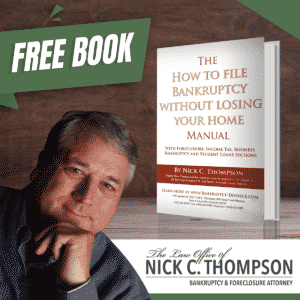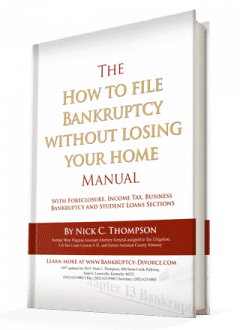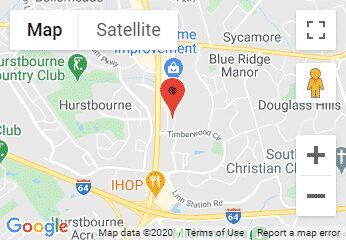Chapter 13 bankruptcy and student loans don’t seem to mix. However, to avoid collections, both private student loans and government loans are controllable in Chapter 13. Additionally, Chapter 13 can force even the Department of Education to make a loan affordable.
Chapter 13 Bankruptcy and Student Loans • What You Need to Know
The two types of student loans.
There are two basic types of student loans. There are private student loans and government student loans. Government student loans can garnish wages, seize tax refunds, levy bank accounts, and even take social security benefits without going to court. However, if you are in default, the government commonly takes tax refunds but rarely garnishes wages or seizes bank accounts. If this happens, increase your tax deductions so that nothing is lost.
Private student loans have to sue to force collections. Without a judgment, private loans cannot attach wages and bank accounts. Private student loans cannot seize your social security check or tax refund like government student loans. Neither government nor private student loans can collect while you are in bankruptcy. When you file a Chapter 13 Bankruptcy, a federal court order called a stay goes into effect and protects you until the end of the case when you apply for a discharge.
Chapter 7 operates similarly, but because Chapter 7 only lasts 3-4 months, it is more like a speed bump to student loans. Most 13 cases are for five years. For private student loans, these are like a 5-foot-thick steel-reinforced concrete wall they run into. They can do little or nothing to enforce the loan for five years, and often their cases are dismissed while the plan repays them zero.
Chapter 13 and student loans simple solution.
So what is the answer? Supposedly, bankruptcy never helps with a student loan problem right? Wrong. Let us look at the actual record in Kentucky. Best Case bankruptcy software looks at the records of how judges ruled in student loan cases. According to Best Case, about nine cases have been filed for hardship discharges in Western Kentucky in the last three years. Judge Fulton denied all three adversary proceedings. Judges Stout and Lloyd granted and declined undue discharges about 50% of the time.
Four scientific studies show nationwide judges grant hardship discharges about half of the time. People win about 47% of the time because people who ask for undue hardship discharges make sure they have excellent cases. They far more often file adversary cases themselves. Prose Debtors win more often than lawyers think. However, if you use an attorney who has been trained to do student loan cases, the rate is even higher!
In 2001, I was granted a partial hardship discharge by arguing that taxes took almost half my income. Two ex-wives took the other half leaving nothing to repay student loans. Plus, I was caring for an elderly father in his final years. The only way to pay student loans was not to provide child support. Keep in mind that both the judge and the assistant attorney general were women who were personally involved in divorce and child support cases. Interestingly, the argument won a partial undue hardship of about 80% of the debt. The statistics show judges approve undue hardship discharges almost 50% of the time
Solving private student loan problems.
I file Chapter 13 cases for clients with private student loans that pay nothing to these long-term loan debts. After a year or two, any lawsuit the private student loan has filed gets dismissed for lack of prosecution in state court. Filing Chapter 13 discourages private student loan collectors from ever suing the Chapter 13 debtor again. After no payments for five years, most private loan servicers or lenders give up. The fact is, litigation wastes their legal fees and expenses and pays them nothing back.
The statute of limitations eventually makes the debt uncollectible and unprofitable. But for the rule to run, you must not make payments, admit the debt, and no judgment can be granted. Instead, they file litigation in other cases that are more likely to end in recovery. The statute of limitations is only three or five years in some states. But in Kentucky, it is six years for negotiable instruments, and almost all private loans are Article 3 negotiable instruments. Written contracts have either 15 or 10-year statutes of limitations.
Solving government student loan problems.
Income-based repayment loans make most government student loans affordable. If you have several different government loans, you consolidate them to make them more affordable. Some people will call this income-driven repayment. One of the loan options is an IBR loan, and we should not confuse the idea of income-based repayment with the IBR program of the same name. Servicers often demand unreasonable payments when they place you into a loan consolidation or rehabilitation program to solve government loan defaults. Servicers earn fees from penalties and interest they collect. It is to their advantage for your payments and commissions to be high. If you need to force the servicer to offer reasonable IBR payments, you may want to file a Chapter 13 and an adversary for a hardship discharge. Documenting how the servicer and Department of Education have been unreasonable will help.
Government loans and Chapter 13
In a Chapter 13 Bankruptcy for student loans, the monthly Chapter 13 payments are often a minimal 200 or less. Plans can get down to a 0% payback to unsecured creditors. If the servicer demands unreasonably high payment terms, place the issue before a judge. Then, the judge has to choose to allow a discharge of the student loan or deny basic medical care, food, and essential services to the family. That lays the crucial elements of undue hardship.
A servicer will often lower the payments for an IBR or rehabilitation if you file an adversary. The client must be willing to follow through with the additional expense and time to file an adversary. However, I find that these strategies work. Moreover, at least one of our judges states that Chapter 13 is an answer to servicers who do not offer affordable IBR and rehabilitations. Servicers will rarely place you into an affordable option, and we suggest using Studentloanify to analyze which loan repayment program is best.
General Summary
Litigating the student loan in state court against a private loan is a ton of work and expense. It also takes an emotional toll on the client. My solution of filing a Chapter 13 has worked so far in every private student loan Chapter 13 case I’ve filed. It works by starving private student loan accounts to death.
Loans do not normally age for the statute of limitations purposes while you are in bankruptcy. Each state makes its own rules on how to calculate the SOL. But Chapter 13 does age the amount of time private student loans go without payment. Filing Chapter 13 degrades the collectability of a loan. Chapter 13 makes collection financially non-profitable to prosecute. While there is a cost to Chapter 13, it is less expensive than a judgment and garnishment. Creditors can enforce Judgments for 15-20 years and renew judgments repeatedly.
Chapter 13 Summary
Filing a Chapter 13 seems less stressful for the clients than litigating private student loans in state court. A Chapter 13 student loan bankruptcy often has a minor 175 dollar a month or less payment into a Chapter 13. You gain the benefit of the bankruptcy stay. Chapter 13 also manages or discharges other debts. A Chapter 13 places loans into an uncollectible status. I have never seen a private loan sent to back legal collections again after Chapter 13 discharges.
Chapter 13 can balloon the account balance with government loans unless it discharges, but income-based repayments make this irrelevant. For government loans, the payment is important, not the debt amount, which will be released upon the end of 20 years or death. Your goal is often to make 20 years of payments. Some debtors obtain 10 dollars per month payments even after a lawsuit by the local US attorney general. With private loans, you have an even greater ability to discharge or modify the loan.
 Resources for Student Loans
Resources for Student Loans
How to Stop Student Loan Wage Garnishment
Current Student Loan Interest Rates
How to Stop Student Loan Collections and Garnishments with Bankruptcy
Bankrupt or Discharge Student Loans
Student Loan Rehabilitation Law New Regulations
Do you need help managing your student loan? Contact my office right away to start the conversation. Nick C. Thompson, Attorney: 502-625-0905.







